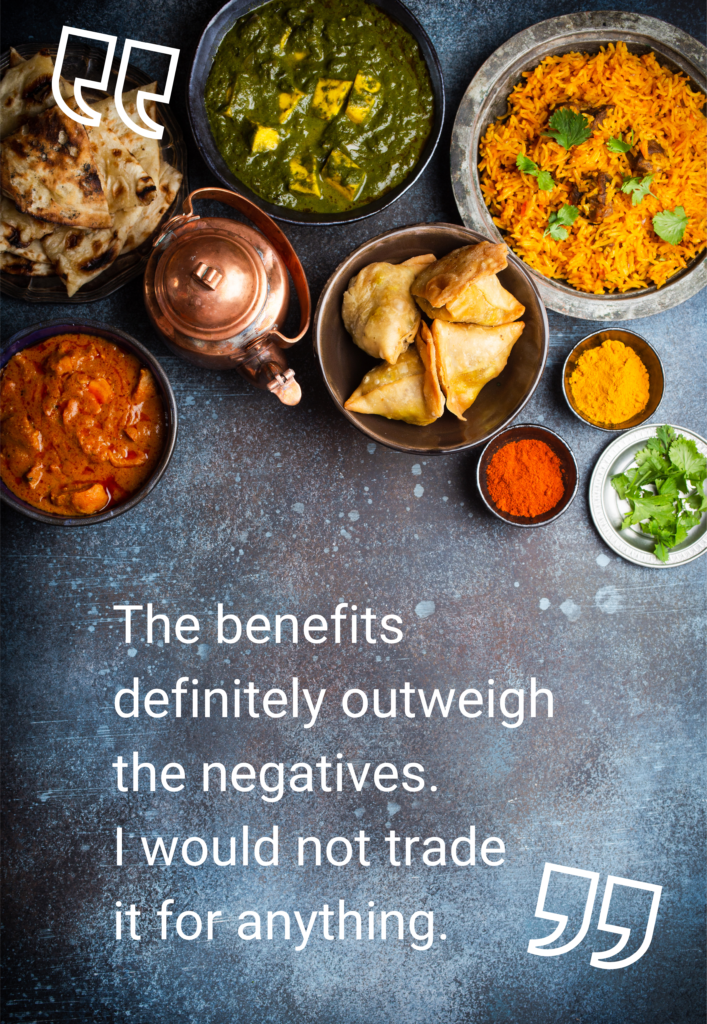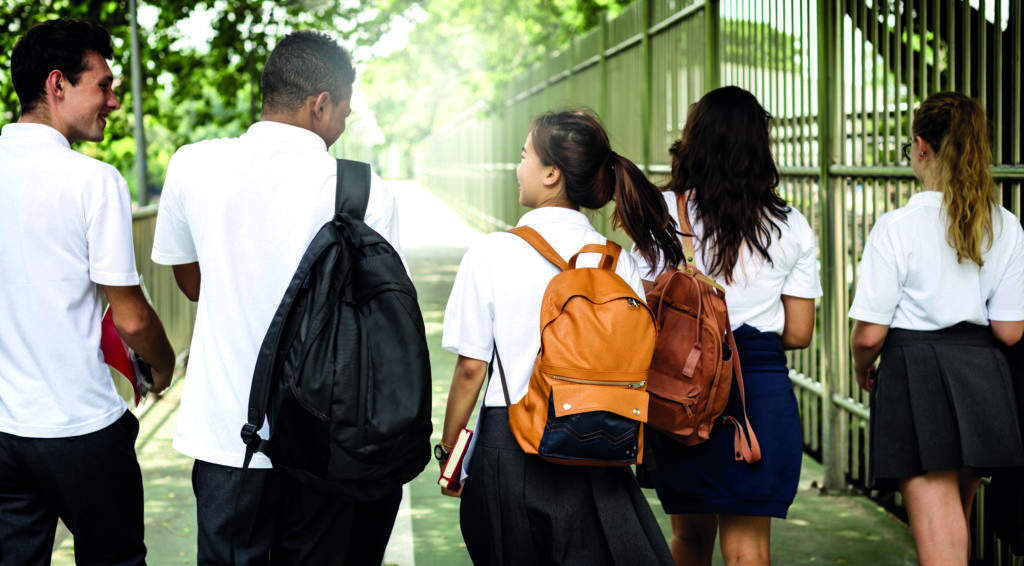Joel, age 16, shares his thoughts on living in a British multicultural city where his parents work as Interserve Partners.
I think my favourite thing living here is the food. There are such amazing good foods that you wouldn’t get in other places. Like when your friend brings leftovers from the South Indian restaurant where his mum works – that’s quite a nice addition to your usual packed lunch, isn’t it?
A diverse community
Living in such a culturally and ethnically diverse community has, for the most part, been incredibly beneficial to me as a person. Being in a place that’s so diverse has really broadened my mind to the amazing other cultures, languages and foods that there are worldwide. It’s given me a wider view on the world as a whole and a desire to travel too. It’s more of an interesting upbringing. Every day is different because you engage with someone else from another background who has different experiences to you – there’s so much to learn and to enjoy.
Of course, not having a typically ‘normal’ upbringing in the UK, one of the possible drawbacks is not having many people similar to me or people who share my faith around me. At times that has left me a little bit isolated – it puts me on the outside. Like if they’re talking about an experience they’ve had that is very prominent in their culture but I don’t really know about. Sometimes I feel I don’t understand some of the things that are normal for other people. And people are really multilingual here – sometimes they talk in their first language and many other people can understand them (because many South Asian languages are so closely linked), but I can’t. Sometimes I wish I knew what they were saying.
But the benefits definitely outweigh the negatives. I would not trade it for anything. 100%.

Conversations on the playground
Compared to many places in the UK, talking about faith is much easier in my context. Many people are from other faiths – everyone is very religious and there aren’t many non-religious people at school. Conversations about religion are very common, especially on the playground. I think if you were talking to a non-religious person about faith, there’d be less discussion because they just don’t really talk about that at all. But here, people are really open to share about their faith and what they believe, to learn from each other and talk about differences between different religions.
Sometimes there are disagreements. People can be adamant about their point of view or convinced that someone else’s view is wrong, or just impossible! But I think people are more open to difference, and they understand that other people will disagree. So there’s more respect, and an allowance about disagreements. A lot of the time the subject of God comes up, and of course this is very different in different faiths. People want to know how many gods there are in different faiths and if they come under one bracket of God or not, or how Jesus can be God and human at the same time. Everyone is really interested to know what each other believes, and I think there’s a real desire to know more.

Growing in confidence
Last Christmas I helped with the crafts at Messy Church. We were making little Christmas tree biscuits with 7-11 year olds. As they made biscuits, myself and another helper would go round asking the kids questions, like did they know what the lights and the star on the Christmas tree symbolised? We explained that the lights on the tree represent Jesus as the light of the world, God coming down to us, and talked about the star that guided the wise men and shepherds to Jesus when he was born. Most who came were families of other faiths from the local community. It gave me real joy seeing the interest that there was in some of the kids, but also in their parents who were helping them and encouraging their children to listen to what I was saying. I guess talking about faith with my friends made it easier to talk naturally there too. It really encouraged me.
I think that living in a multicultural area and having conversations about religion in school really forces you into defending your faith. I’ve had to really think about what I believe and whether its defensible. It’s made me a lot more comfortable talking about my faith to other people, and increased my confidence. There is no shame in talking about my faith for me now. There’s nothing to hide.
This article is taken from GO Magazine Issue 3, Autumn 2023, ‘Families on Mission’

)